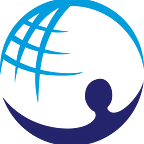Investing in the futures of women and girls means investing in sexual and reproductive healthcare
In the battle against COVID-19, the UK has abandoned the world’s women and girls — it must reverse the cuts.
In the wake of the most brutal cut to UK overseas aid in years, hundreds of charities, including the International Planned Parenthood Federation (IPPF) and Frontline Aids, are reeling as they struggle to navigate how to continue providing life-saving services with millions of pounds missing from their budgets.
Despite the UK’s long-standing legacy as a leader in international development, for a Boris Johnson government to target the aid budget is no surprise — he campaigned vigorously for years to disband the Department for International Development (DFID), folding it into the Foreign and Commonwealth Office in June last year. However, the ferocity of the most recent cuts has stunned us, with Johnson slashing aid spending from 0.7% to 0.5% of the U.K.’s national income — around £4.5 billion in real terms.
In the build-up to these cuts, the government made noise about its continued dedication to gender equality and marginalized communities. It pledged in the Integrated Review to work with organizations to tackle the discrimination, violence, and inequality that women and other marginalized groups face and made concrete commitments to getting 40 million girls into school by 2025.
As host of the upcoming G7 summit, it has also hinted at new commitments on pandemic preparedness and response. But with hundreds of millions of pounds in cuts to the frontline charities already challenging gender inequality and providing healthcare services, and no timeline as to when the aid budget will return to normal, the outcomes of the COVID-adjusted budget are a massive contradiction in terms and a betrayal of women and girls everywhere.
IPPF, which delivers sexual and reproductive healthcare in over 140 countries worldwide, has lost around £72 million from programmes that provide life-saving contraception and sexual and reproductive healthcare for some of the most marginalized women and girls, including those living in extreme poverty, people in refugee and humanitarian settings, people living with and most affected by HIV, and survivors of sexual and gender-based violence. It is one of the most significant funding losses since Donald Trump’s Global Gag Rule.
The cuts also mean partners, like Frontline Aids, have invested £2 million and two years of planning into projects stopped dead in their tracks. At the same time, frontline providers in highly challenging settings including Lebanon, Mozambique, Nepal and Uganda are now unable to deliver the services they promised and will struggle to meet the needs of their communities.
In a double blow, the £131 million cuts to UNFPA Supplies — the largest provider of donated contraception for some of the world’s poorest communities- means losing much-needed supplies of free contraception for programmes worldwide. Meanwhile, UNAIDS — which runs the United Nations’ joint response to the global HIV pandemic — is grappling with a cut to its UK funding of more than 80%. Providing sexual and reproductive healthcare and HIV services without contraception, condoms, or other HIV prevention supplies is another bridge IPPF and Frontline Aids must cross.
In Zambia, over a quarter (28.5%) of girls aged 15–19 have been pregnant or given birth; girls like Arnilda, helped by the WISH programme to access contraception after being forced out of 7th grade when she had her first child. So, if the government is genuinely committed to advancing gender equality and ensuring 40 million girls can go to school by 2025, why is it leaving funding for sexual and reproductive healthcare out of the equation?
As the UK heads into the G7 summit in June, a growing number of voices, including Tory rebels from Johnson’s own party, are questioning how the UK can lead the G7 to build back better after the coronavirus pandemic while stepping back from its own commitments? Especially while other G7 players are stepping up support, despite the economic costs of the pandemic — like Canada, which convened a gender equality task-force ahead of its spring budget, or the US, which has increased overseas aid spending by 10%.
The COVID-19 pandemic has shown us how fragile advancements in equality are, and the pandemic’s economic effect is going to push approximately 120 million more people into poverty. Women and girls are already suffering the pandemic’s effects disproportionately compared to men, shouldering most of the pandemic’s paid and unpaid care work, facing economic insecurity and significant rises in gender-based violence[i]. Knowing this, the UK government could not have strayed further from the path it must take to ensure the world builds back better.
The UK economy is predicted to recover by the end of 2021, but hard-won progress on sexual and reproductive health and HIV, well-established healthcare services, and the lives of the women and girls we stand to lose will not. Ultimately, by making short-sighted cost-savings in the name of Covid-19 recovery, this government is undoing years of U.K. investment in other areas of health and abandoning women and girls in the process.
Cuts cost lives, and IPPF and Frontline Aids urge the U.K. government to recommit to returning aid allocations to 0.7% of GDP, a commitment enshrined in law. Now, more than ever, frontline services desperately need resources and continued support from the UK and other donors so they can continue providing life-saving sexual and reproductive healthcare and HIV support for the people who need it most.
Dr Alvaro Bermejo, Director-General of the International Planned Parenthood Federation and Christine Stegling, Executive Director at Frontline AIDS.
[i] https://www.un.org/development/desa/family/wp-content/uploads/sites/23/2020/09/Duragova.Paper_.pdf
